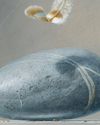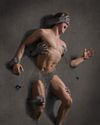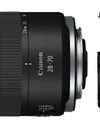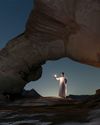
Whether your Canon camera is a DSLR, mirrorless, bridge or even a creative compact, it will come loaded with a wide arrangement of modes for you to choose from. These modes offer automated assistance to help you out when you’re first getting started with your Canon and go all the way up to fully manual where you take total control of the functions and settings. There’s countless modes in between too, which cover a wide range of scenarios.
In this feature we’ll take a look at all of the important exposure modes you’ll find on your Canon EOS. Not all Canon cameras are built the same, so you’ll often find additional scene modes and creative filters on more entry-level models, like the new Canon EOS R100, which even has some brand new additions, while more advanced features like the Flexible Priority (Fv) mode is currently only exclusively found on more premium full-frame mirrorless Canons like the EOS R and beyond.
Automatic and semi-automatic modes are great for those just starting out in photography as it means you don’t have to worry about a large list of settings or the exposure triangle – the camera takes care of this for you, so you can concentrate on focus and work on the perfect composition. We’ll run through what all of the different modes do, when to use them and build up your confidence so you feel comfortable stepping away from the fully automatic modes, and can take more control and put your own creative stamp on your photographs.
Automatic modes
Auto modes let you shoot safe in the knowledge that your Canon will take a correctly exposed, sharp picture
Scene Intelligent Auto (A+)
This story is from the {{IssueName}} edition of {{MagazineName}}.
Start your 7-day Magzter GOLD free trial to access thousands of curated premium stories, and 9,000+ magazines and newspapers.
Already a subscriber ? Sign In
This story is from the {{IssueName}} edition of {{MagazineName}}.
Start your 7-day Magzter GOLD free trial to access thousands of curated premium stories, and 9,000+ magazines and newspapers.
Already a subscriber? Sign In

The Art of Copying Art - James Paterson shows you how to use your Canon gear to capture artwork and paintings the right way with simple camera and lighting skills
Whether you want to capture a painting like the above, digitise old prints or reproduce any kind of canvas, there's real skill in capturing artwork with your camera. Not only do you need the colours to be accurate, you also need to master the spread, angle and quality of the light to minimise glare and show the work at its best.This painting by the artist Bryan Hanlon has a wonderfully subtle colour palette. To reproduce the painting in print and digital form, it needs to be captured in the right way.

Fright night
Canon photographer and digital artist Alexander loves to craft incredible fantasy scenes with a spooky horror twist

Sharpen your shots with DPP
Sharpening a digital image also increases contrast at the edge of details

CANON ImagePrograf PRO-1100
Deeper blacks, better bronzing, greater lifespan and 5G Wi-Fi -Canon's new printer is full of new tech, says

Canon's new 'kit lens' is actually a half-price f/2.8 trinity lens!
The Canon RF 28-70mm F2.8 IS STM lacks a red ring, but borrows premium features from its L-series siblings

DREW GIBSON
Pro motorsports photographer Drew on why he hasn't (yet) switched to Canon's mirrorless system, why old-school techniques can be the most reliable, and the lessons learned from more than a decade shooting the world's biggest car brands

Up in smoke
Make a smoky shape in Affinity Photo and get to grips with the amazing Liquify Persona under the guidance of James Paterson

Expand your creativity with Generative Fill
Photoshop's Al-powered feature brings revolutionary new tools to image editing. James Paterson reveals all...

Turn your images into vintage postcards
Wish you were here? Sean McCormack explains how you can give your summer photographs a vintage postcard look

The Angel Malibu
Light painting an American movie producer in the Wadi Rum Desert in Jordan was a highly unlikely evening out for David!